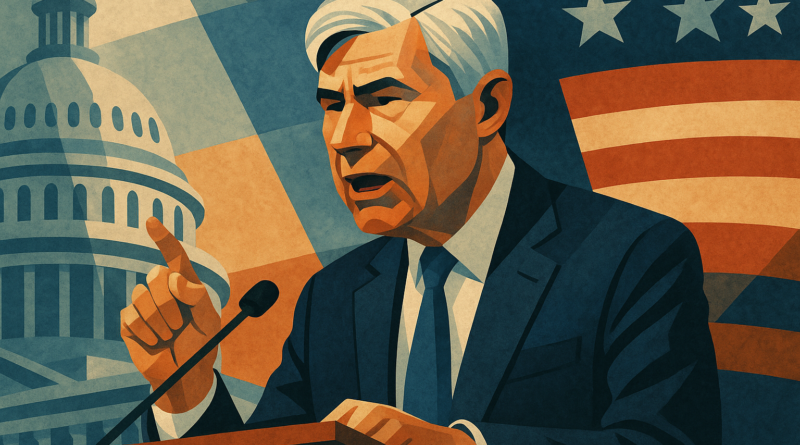Senator Whitehouse Opposes Rollback of Methane Emissions Penalty Provision
Washington, D.C., February 27, 2025 — In a Senate floor statement delivered during the 119th Congress, Senator Sheldon Whitehouse of Rhode Island expressed strong opposition to a measure aimed at overturning a rule regulating methane emissions from the fossil fuel industry. Whitehouse highlighted the dangers of methane, describing it as a poisonous, explosive gas and a potent greenhouse gas that is 80 times more harmful than carbon dioxide over a 20-year period.
The Senator emphasized two critical reasons why methane emissions should be regulated. First, he pointed to the immediate danger posed by methane, which is both hazardous and explosive. Second, he underscored the significant contribution methane makes to climate change, due to its potent greenhouse gas effects. Whitehouse further noted that the fossil fuel industry had historically underestimated the scale of its methane leaks. While the industry had initially reported leaking approximately 8 million tons of methane annually, independent sources, including satellite and aircraft data, revealed that the true figure was closer to 32 million tons – four times greater than previously disclosed.
To address this, the U.S. government had implemented a measure designed to incentivize the oil and gas industry to reduce methane leaks. Whitehouse explained that, as part of this initiative, the industry was granted $1.5 billion in taxpayer money to help mitigate methane leaks from poorly maintained equipment, such as pipes, valves, and wells. Despite this financial assistance, the measure also included a penalty provision for companies that continued to exceed methane leakage thresholds.
However, Whitehouse expressed his concerns regarding the current vote, which would strip the penalty provision and allow the industry to retain the $1.5 billion without necessarily addressing its methane leakage problems. He argued that the industry should at least meet its own standards for methane emissions and that those failing to do so should face consequences. Whitehouse criticized the provision as a favor to the worst-performing segment of the industry—those who had not met even the basic industry standards for controlling methane leaks.
Whitehouse also noted the broader economic implications of unchecked climate change, referencing predictions of significant economic losses in the United States due to the consequences of rising global temperatures. He argued that allowing the oil and gas industry to avoid penalties for excessive methane emissions was a failure to address a pressing environmental issue.
In conclusion, Whitehouse labeled the vote as “shameful,” urging the Senate to take action against the worst methane emitters and protect the environment from further harm.
Disclaimer:
This article is based on official statements and proceedings from the U.S. Congressional Record, a public government source. The content reflects remarks made by members of Congress and has been edited solely for clarity and length. EnergyRoundup.com presents these records for informational purposes and does not endorse any political viewpoint.

